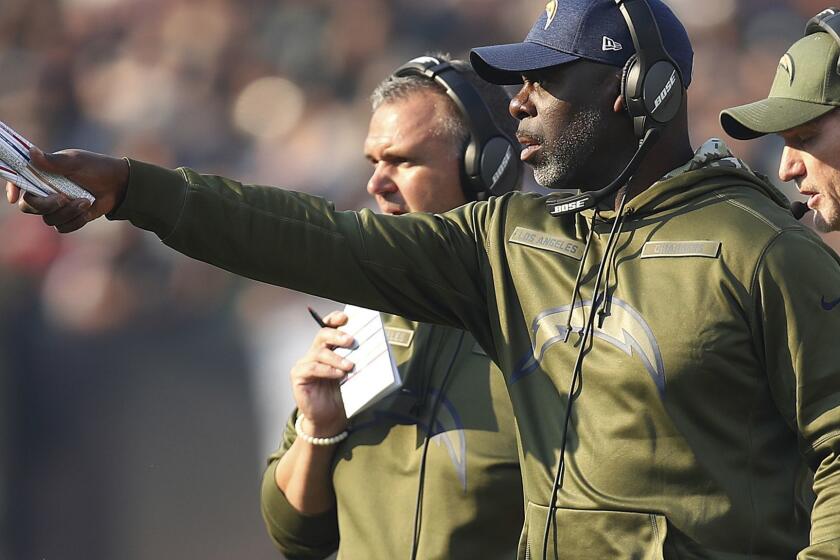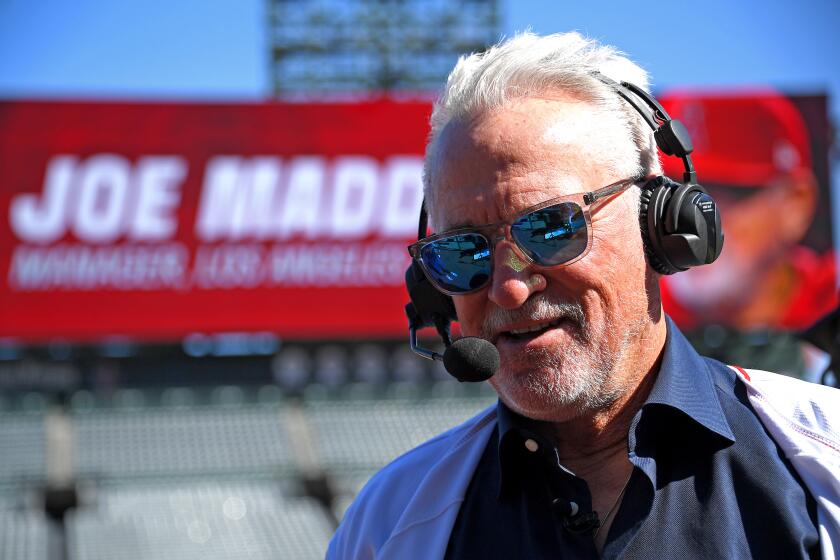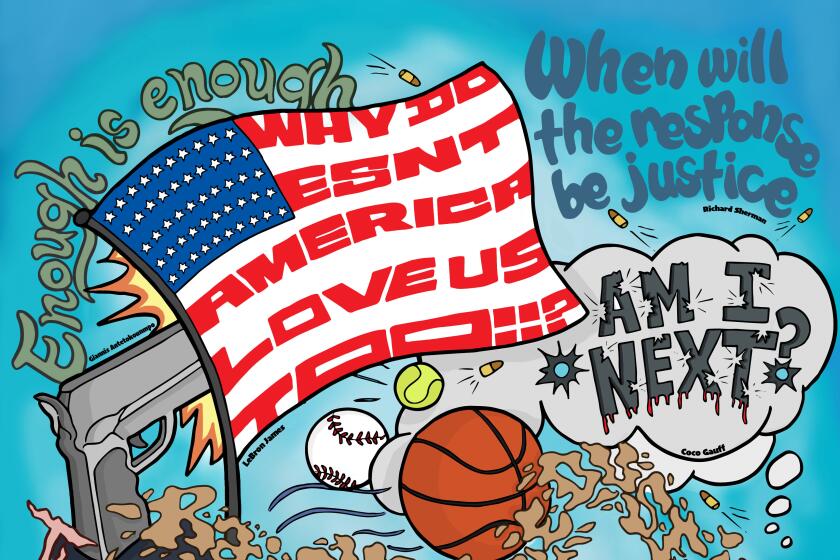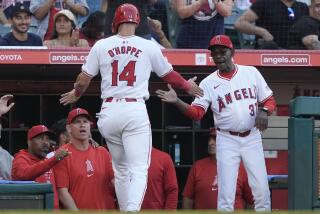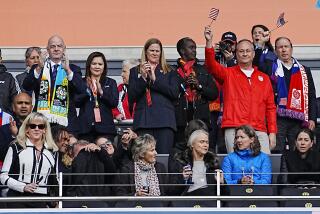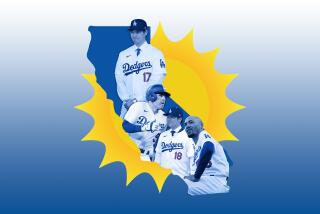Angels manager Joe Maddon helped his Pennsylvania hometown combat racism a decade ago
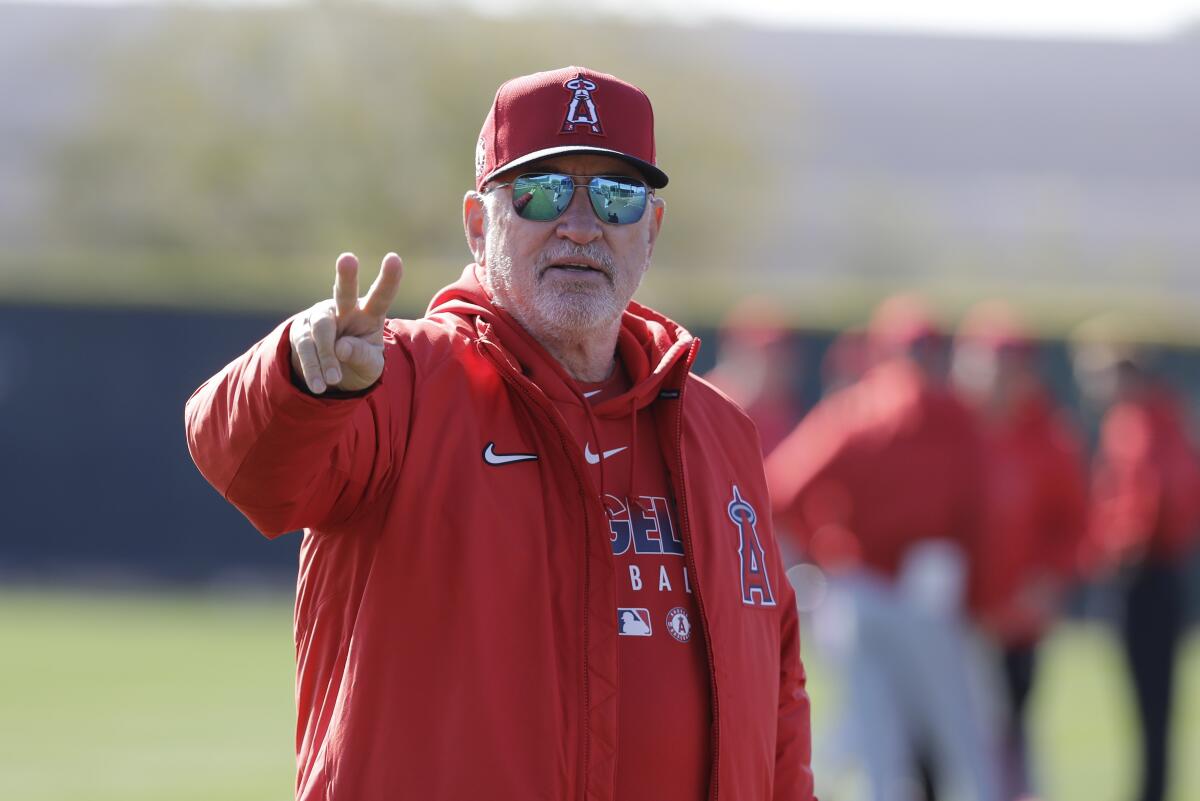
The statements flood social media, from athletes and leagues and corporations, all full of promises and pledges and the best of intentions.
And then, Joe Maddon wonders, what next?
The national outrage triggered by the death of George Floyd eventually will subside, and elected officials will be left to consider public policy choices that address the root causes of police brutality and systemic racism. Beyond that, translating anger into action can be a challenge.
“All you read right now is rhetoric,” the Angels manager said. “Everybody is incensed, and rightfully so. But what’s the next step?”
The Chargers coach shares his thoughts on George Floyd’s death, his relationship and experience with law enforcement and Colin Kaepernick.
Maddon took that next step a decade ago, after he had what he calls “that actionable moment.” He had an epiphany while sitting in a day care center, squeezed into a kid-sized chair, his knee rising above the adjacent kid-sized table.
He was visiting his hometown of Hazleton, Pa., some 100 miles northwest of Philadelphia. The town of 25,000 had become increasingly divided along racial lines, the old community built by European immigrants against Latinos, many of whom had left New York after 9/11 in search of a good job and affordable housing.
“They were looking for the American Dream,” Maddon said, “no different from when my folks had come into town.”
According to census data, the Latino population in Hazleton jumped from 4.9% in 2000 to 37.3% in 2010. In between came a recession and, in Hazleton, a purported crime wave, symbolized by two undocumented immigrants from the Dominican Republic charged with the murder of a white father of three.
The mayor shepherded a law that made English the official language of Hazleton and threatened to strip the license of any business employing workers who were in the country illegally and fine any landlord found to be “harboring illegal aliens,” regardless of whether they paid rent.
Angels manager Joe Maddon recruited Albert Pujols, Carlos Peña and Tino Martinez to help stem the coronavirus crisis in his Pennsylvania hometown.
Actually, the crime rate in Hazleton fell every year from 2006 to 2011, according to the Philadelphia Inquirer. The so-called Illegal Immigration Relief Act was thrown out in court as unconstitutional, but the mayor was elected to represent that district in Congress.
Distrust lingered. In those years, Amilcar Arroyo said, he would go to the grocery store and hear Spanish-speaking residents being told they should speak English or go home.
Arroyo publishes El Mensajero, the region’s Spanish-language newspaper. When Maddon visited that Latino-run day care center one Sunday after church, Arroyo accompanied him, amid the joyful sounds of kids playing.
“This is exactly the way I grew up,” Maddon told Arroyo.
In Maddon’s youth, Italian kids and Polish kids and Irish kids bonded, often through sports. His first roommate in pro ball, in 1976, was Dickie Thon, a Puerto Rican. Why not, he thought, open a community center where kids of all backgrounds could gather for sports, activities and educational programs? If the Latino kids would be the only ones there, so be it.
Maddon launched the Hazleton Integration Project, with the goal of uniting residents of different cultures and ethnicities. The project’s primary focus is operating the Hazleton One Community Center, which opened in 2013.
“When I started doing this,” Maddon said, “there was a big backlash: ‘Joey, what are you doing? These people are bad. We’ve got to get them out of town. I can’t believe you’re supporting them’ — using the word ‘them,’ really derogatory commentary.
“I just said, ‘You guys have no idea what you are talking about. These folks are here. They are going to save our community.’ ”
Joe Maddon’s foundation Respect90 holds ‘Thanksmas’ at the Rescue Mission in Tustin, and the new Angels manager appears in person to meet families.
Maddon continued to hear those sentiments even after the community center opened. When he reiterated on national television that Latino immigration would revitalize the town, he said everyone else could “either help or die.” The Wilkes-Barre Times Leader chided Maddon: “Joe, you are not a social engineer. You are a baseball manager.”
The community center has served more than 1,000 people a week from the day it opened in 2013 until the coronavirus closed it this spring, said Bob Curry, the center’s president, who is married to one of Maddon’s cousins. The Latino kids came right away, he said, but residents of all ages and ethnicities have grown to use the center.
Latinos make up the majority of Hazleton’s population now, Arroyo said, staffing recently built industrial parks but also renovating old homes and opening more than 100 small businesses. The divisions are not gone, he said, but the ethnic communities work together more often.
Maddon’s program does not do the only good deeds in town, but it is the only one that lured Tommy Lasorda, Mike Ditka and Joe Namath as fundraisers. When Hazleton schools struggled to recruit Latino teaching candidates for the increasingly Latino district, Maddon said, his program partnered with a nearby university so Hazleton students could earn a credential, then come back and teach at home.
“We’re going to provide the candidates,” Maddon said.
That is an example of action. The Major League Baseball statement in the wake of the recent national protests said in part: “MLB is committed to engaging our communities to invoke change.” The league pledged action against “systemic racism, prejudice and injustice,” but did not say how it would address the behavior it labeled as “unacceptable.”
In the wake of the George Floyd killing, athletes and leagues have led with bold words and actions, but will the power of their protest carry over to the games?
“We’ve gone through this, historically, and it seems to never change,” Maddon said. “At some point, you have to apply a plan.
“This is a very complex situation, but so was ours. You’ve got to get together and create a plan. I’d have to believe, now more than ever, there are groups that want to sit down and start planning things more specifically.”
He said he would encourage Angels players to plan and participate in volunteer efforts in their hometowns, and in Orange County.
“The players could take that kind of an activist role in their communities, and attempt to create change in their communities,” Maddon said.
“Every player can reach out into their community. You can help to enact change. You can become part of the solution. You can show up, put boots on the ground. It’s one thing to contribute financially. It’s much greater to contribute your time and your presence.”
In Hazleton, he did both.
“I’m not patting myself on the back,” he said. “But it bothered me that much that we did something about it, and we continue to do something about it.”
More to Read
Go beyond the scoreboard
Get the latest on L.A.'s teams in the daily Sports Report newsletter.
You may occasionally receive promotional content from the Los Angeles Times.

